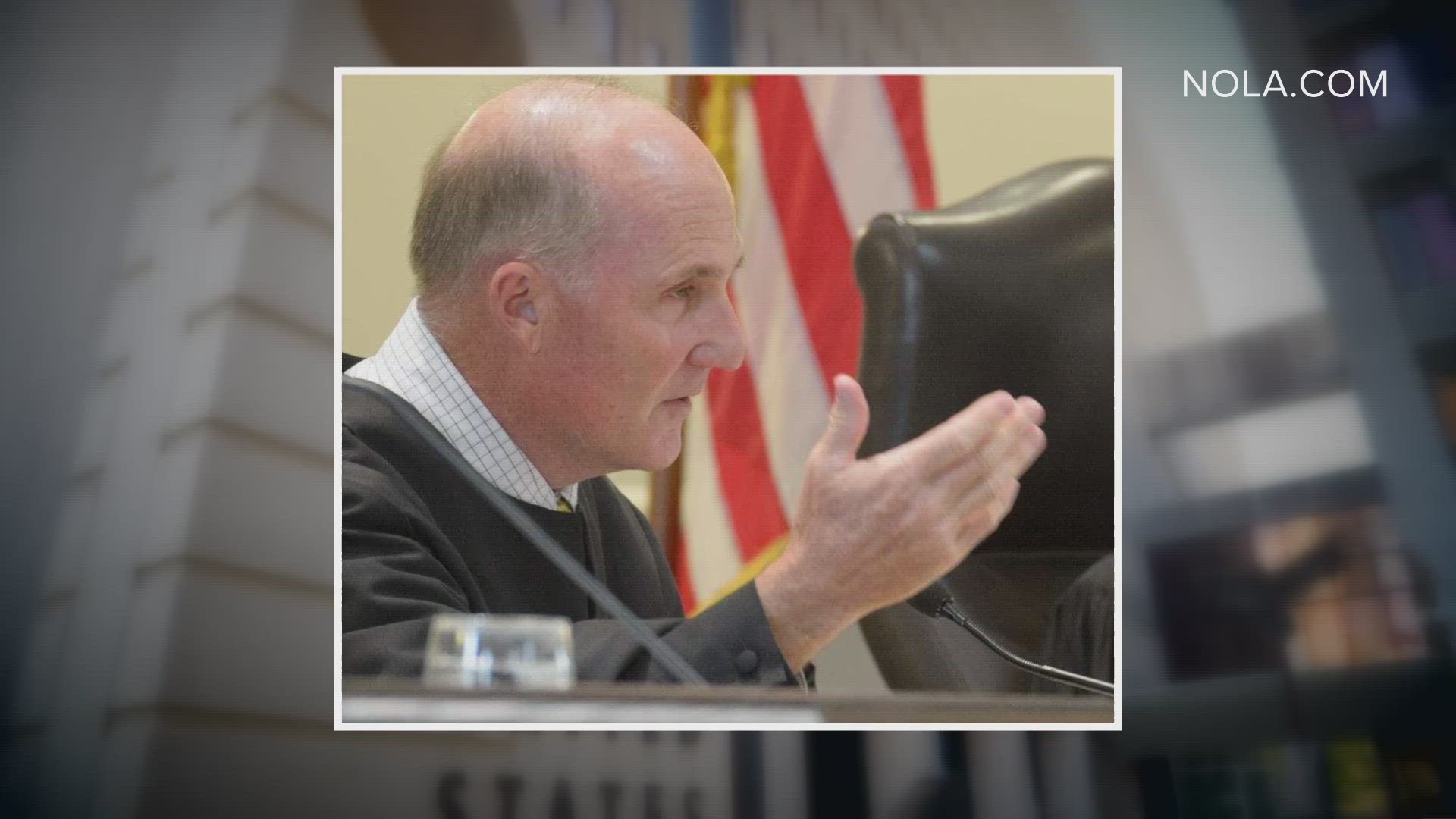NEW ORLEANS — A federal judge who donated tens of thousands of dollars to Catholic charities in New Orleans says he will not step down from hearing matters related to the Archdiocese’s ongoing bankruptcy.
U.S. District Judge Greg Guidry told attorneys during a Friday status conference, he’s certain he can be fair and impartial when he hears appeals related to the case, which is expected to set final payments to 500 clergy sex abuse victims.
The Associated Press first reported the judge may have a conflict.
The AP reviewed campaign finance records and found Guidry donated nearly $50,000 to Catholic Charities.
The money was left over contributions he received after serving ten years on the Louisiana Supreme Court.
AP reporter Jim Mustian also reported Guidry served on a Catholic Charities board between 2000 and 2008.
“Several experts we interviewed for this story said that there was no question that Judge Greg Guidry has been a friend of the church for a very long time,” Mustian told WWL-TV. “It’s not something he’s tried to hide in any way.”
Judge Guidry told attorneys he referred the matter to a judicial committee on codes of conduct made up of federal judges from around the country. Most notably, the charities are not directly part of the Archdiocese’s bankruptcy case.
Reading from the panel’s advisory opinion, he said, “none of the charities to which you contributed some of your wind-down campaign funds has been or is an actual party in any proceeding before you.”
And, according to the opinion Guidry read, “your leadership as a board member of one of the charities ended 15 years ago, which is a significant span of time.”
Judge Guidry ended the conference by saying he has decided not to recuse himself in light of the committee’s advice.
James Adams, who claims he was abused by a priest in 1980, said the church asked him to step down as president of the Catholic Community Foundation after he filed his abuse claim because of a “perceived conflict.”
“If that’s the basis for a conflict, then surely the Archdiocese wouldn’t want a judge who contributes to the Catholic Community Foundation and the Archdiocese and then has the Archdiocese in a case before him,” Adams said.
Adams said Guidry’s appellate rulings have already had a profound impact on the bankruptcy case. Last year, just as settlement talks were supposed to begin, U.S. Bankruptcy Judge Meredith Grabill removed Adams and three other alleged abuse victims from a key committee of church creditors because of actions by one of their attorneys. It brought negotiations to settle the abuse claims to a grinding halt.
Adams’ attorney, Richard Trahant, had used access to confidential information in court to alert Brother Martin High School that its chaplain at the time, the Rev. Paul Hart, had admitted to fondling and kissing a 17-year-old girl. Grabill sanctioned Trahant for violating the court’s secrecy rules. Hart died shortly after that.
When Adams appealed his removal from the creditors’ committee, Guidry declined to hear the appeal. He also upheld sanctions against Trahant that included paying the Archdiocese $400,000 in fines.
“It’s important for folks to remember that simply having a Catholic judge doesn’t disqualify them, but when judges are actively involved in ministries and have a financial impact directly to the archdiocese, that’s a different story,” Adams said. “He certainly should have revealed his involvement. To me it demonstrates a bit of arrogance by the judiciary.”
Another clergy sex abuse victim, John Anderson, is now encouraging his attorneys to file a motion to disqualify Guidry.
“We are going to do something,” Anderson said. “There’s no question about it. It has to be done, you know. This is our time. We’ve been waiting for years to get things done the right way.”
Victims advocate Richard Windmann, president of Survivors of Childhood Sex Abuse, said the judge’s refusal to get off the case is retraumatizing to the survivor community.
“I don’t think he can be impartial. I don’t think he can rule on the law. I’m dubious about that.”
According to the AP, three years into the case Guidry has more often than not ruled in favor of the church.
“Typically, in a question like this, what you’ll hear from legal experts is, if you’re asking the question, there’s already reason to believe there’s a potential conflict,” Mustian said.
A spokesman for the Archdiocese declined to comment at this time, letting the judge’s statements speak for themselves.

